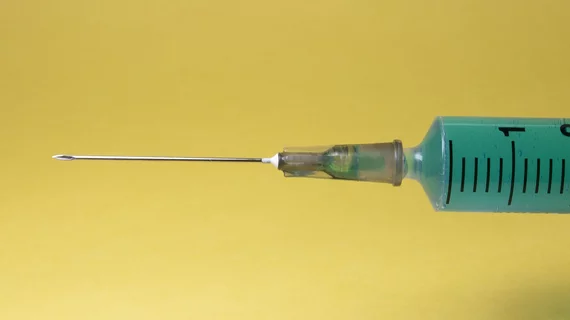Molecular imaging group shares updates for managing COVID-19 vaccine effects on PET/CT exams
A top molecular imaging advocate on Tuesday offered up suggestions for radiologists and other docs encountering lymph node changes on PET/CT scans caused by COVID-19 vaccinations.
In its March 30 update, the Society of Nuclear Medicine & Molecular Imaging said reactive lymphadenopathy has been recorded in up to 16% of patients who’ve received either the Pfizer/BioNTech or Moderna vaccines. This side effect hasn’t yet been reported in the Johnson & Johnson shot, SNMMI added.
A number of guidelines suggest delaying imaging 4-6 weeks after vaccination, when possible. But it’s unclear whether six weeks after the second dose is enough to ensure any abnormalities are resolved, SNMMI’s COVID-19 Task Force said Tuesday. The update aligns with many current recommendations, including those from the University of Massachusetts Medical School/Memorial Health Care published earlier this month.
Additionally, the task force said it has anecdotally heard of post-vaccine splenomegaly/increased splenic uptake. The organization outlined three recommendations based on current information.
- Physicians should understand that swollen lymph nodes can happen in the axillary and possibly lower cervical/supraclavicular areas on the side of vaccine injection. This may be seen 4-6 weeks after a patient’s most recent dose.
- Patient intake forms should be changed to include information about the date and site of injection, and which vaccine was received.
- Individuals with a history of breast, and head and neck cancers should receive their vaccine on the opposite side of where their disease is located, when possible.
For more on how to manage vaccine-related radiotracer uptake on PET/CT exams read here and here.

